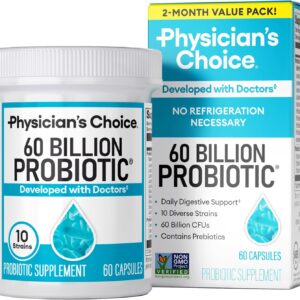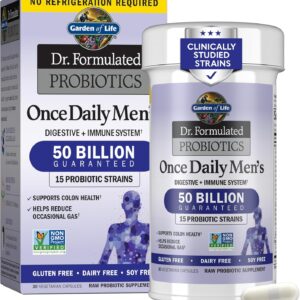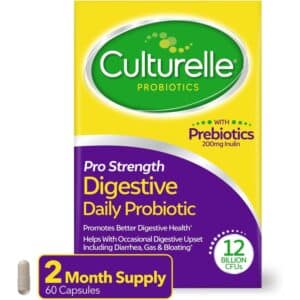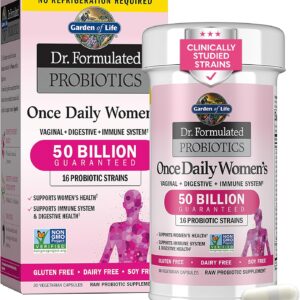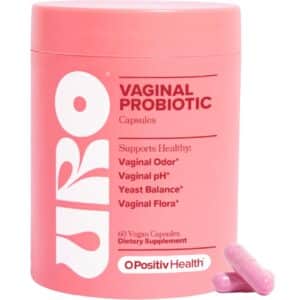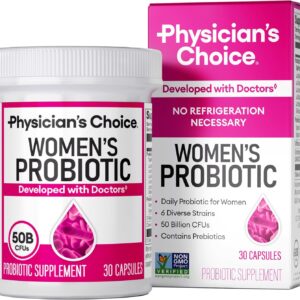Probiotics and upset stomach often go hand in hand when discussing digestive health. These beneficial bacteria can support gut balance, ease bloating, and help reduce symptoms linked to an irritated digestive system. While many people turn to probiotics for relief, others may find their symptoms worsen before they improve. Understanding when probiotics help—and when they might not—can make all the difference in choosing the right approach to managing stomach discomfort.
Understanding Probiotics
Introduction to Probiotics
Ever wondered what probiotics are? They’re not just some fancy health buzzword. These tiny live critters, when ingested in the right amount, can be your gut’s best friend, keeping it happy and healthy. Found in a bunch of foods and supplements, they can easily become part of your daily groove. Not only do they help your belly feel its best, but they also patch up your gut’s ecosystem—which can be a lifesaver when your stomach’s on the fritz. For an in-depth dive into settling an upset stomach, take a peek at our upset stomach post.
Lately, probiotics are getting their much-deserved spotlight. The gut-brain axis, a real thing, shows how your gut’s microbes chat it up with your brain, affecting mood and general health. Keeping your gut in tip-top shape is essential, and you can discover more in our gut health guide.
Role of Probiotics in Health
Probiotics aren’t just chilling in your gut for fun. They’ve got some major roles, like pumping up your gut health and supercharging your immune system. Life can take a toll on these helpful bacteria—poor eating habits, stress, or popping antibiotics can leave them dwindling. Here’s how probiotics help hold your health together:
| Function | Description |
|---|---|
| Gut Health | Probiotics balance your gut’s bacteria squad, easing digestion woes like bloating and constipation troubles. Check out more on digestive probiotics. |
| Immune System Support | By beefing up your gut defenses and boosting immune cells, probiotics help your body fend off nasties. Look more into immune support with probiotics. |
| Inflammation Reduction | They also take a swing at inflammation—which keeps issues like leaky gut syndrome in check. Dive into more about probiotics for leaky gut. |
Some strains of probiotics are like the superhero squad for specific health hiccups. They can cut down the length of kiddie diarrhea big time (see Nutrients). Got a constipation or bacterial/yeast infection dilemma? Probiotics might get you back on track by rebalancing your gut’s army.
Adding probiotics into your life could be just the magic touch you need for a happy, well-functioning digestive system. For those thinking about popping probiotic supplements, give our supplement guide a read.
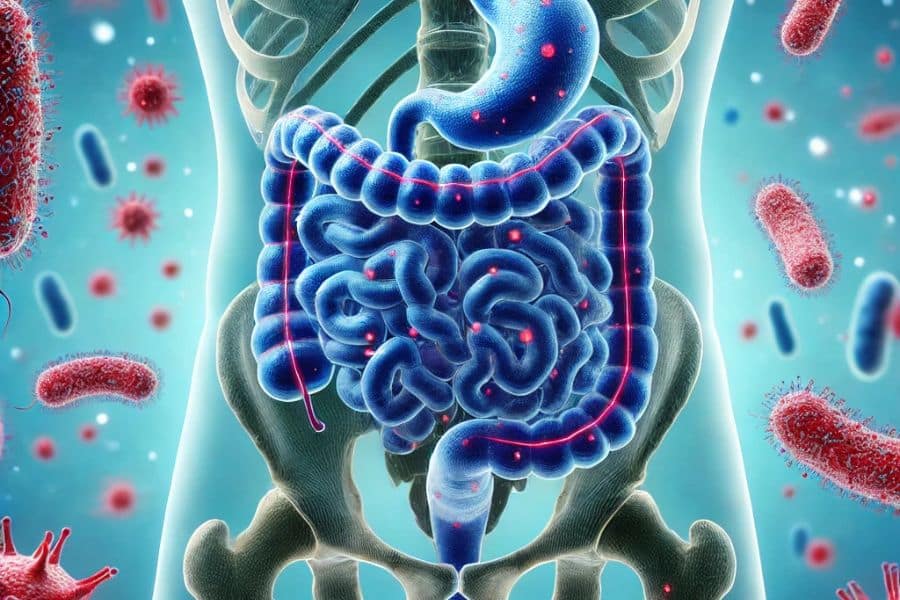
Common Probiotic Strains
Probiotics show up in a bunch of different forms, making it a little easier for you to find the ones that best fit what’s bugging you—like that annoying belly ache. Let’s chat about three familiar probiotic friends:
Acidophilus (L. acidophilus)
Say hello to Acidophilus, or if you’re feeling fancy, call it Lactobacillus acidophilus. It’s a well-known player in the probiotic game, chilling in places like your mouth, belly, lungs, and beyond. This friendly bacteria can help tip the scales back to normal inside you, making it a trusty ally for tummy troubles and more (Cleveland Clinic).
| Benefit | Description |
|---|---|
| Gut Health | Helps get your tummy’s bacteria back in line, easing digestion issues. |
| Immune Support | Gives your body’s defenses a boost by strengthening your gut’s barrier. |
| Diarrhea Relief | Cuts down how long those dreaded runs stick around, especially in kiddos. |
Bifidobacterium Strains
Ever heard of the Bifidobacterium group? It’s a busy bunch found in your intestines, and they’re all about breaking down fiber, making vitamins, and keeping your defenses up. This crew can swoop in to ease awful digestive symptoms and help your gut work like a charm, especially when you have diarrhea (Nutrients).
| Popular Bifidobacterium Strains | Benefits |
|---|---|
| Bifidobacterium lactis | Keeps digestive harmony and gives your immune system a nudge. |
| Bifidobacterium longum | Quiets down constipation and diarrhea. |
| Bifidobacterium bifidum | Breaks down the tough stuff like complex carbs, cheering for digestion. |
Saccharomyces boulardii
Meet Saccharomyces boulardii, a unique probiotic yeast that’s kind of a big deal for gut issues. It can step in during those rough diarrhea days and slice that time down, mainly in the little ones (Nutrients). It also plays a cool role in safeguarding your gut when you’re on antibiotics, curbing the chance of unwanted side effects.
| Benefits of Saccharomyces boulardii | Description |
|---|---|
| Acute Diarrhea Treatment | Known for cutting short and toning down intense diarrhea bouts. |
| Gut Flora Balance | Replenishes those good gut guys during and post-antibiotics. |
| Immune System Support | Gives a helping hand to your immune system through gut checks. |
Knowing these popular probiotic strains lets you make smart picks about fitting them into your meals or health plan, especially when your gut’s throwing a fuss. To dig deeper into how these little helpers can smooth out your digestion, check out more of our stuff on probiotics for gut health and probiotics for digestive health.
Benefits of Probiotics
Probiotics aren’t just fancy talk for live bacteria—they’re like the cool kids of the health world, bringing in some real perks, especially when it comes to your gut. Let’s chat about how adding probiotics to your meals can make a difference.
Gut Health Improvement
The best thing about probiotics is their knack for making your belly feel its best. They act like little balancers, keeping the good bugs in your belly happy and thriving. This balance is what helps you digest all your food snacks and soak up those essential nutrients. When your gut’s in check, things move smoothly and you’re less likely to deal with tummy troubles. Plus, these helpers are pretty awesome at battling unwanted visitors like bad bacteria or that pesky yeast in your digestive system Cleveland Clinic.
Here’s a simplified look at what probiotics can do for your gut:
| Benefit | What’s Happening |
|---|---|
| Keeps Balance | Probiotics help keep good bacteria levels up, especially after antibiotics or other disruptions. |
| Bad Tummy Days? Not So Often | They curb issues like diarrhea and constipation. |
| Better Nutrient Pickup | Improved digestion means your body absorbs nutrients better. |
For more juicy tidbits about how specific strains get your gut in tip-top shape, hop over to probiotics for gut health.
Immune System Boost
Probiotics aren’t just gut buddies; they’re also immune boosters. They back up your gut’s defenses, making your whole system stronger against sickness. A lot of your immune system hangs out in your gut, so keeping it in shape helps fend off germs and bugs Cleveland Clinic.
Take a look at how these little champions boost your immune mojo:
| Benefit | What’s Happening |
|---|---|
| Ups Your Defense Game | Probiotics help your body react quicker and better to germs. |
| Bye-Bye Infections | They reduce the chance of infections, not just in your gut, but everywhere. |
| Less Inflammation | A happy gut means lesser chronic inflammation, which can ward off various health nuisances. |
If you’d like to know more about how probiotics give your immune system that extra pep, peek at probiotics immune system.

Inflammation Reduction
Chronic inflammation is the sneaky culprit behind many health problems like heart issues and digestive woes. Probiotics can tone down this inflammation by making your gut a healthier place and fine-tuning your immune system NCCIH.
Here’s what’s happening when probiotics tackle inflammation:
| Benefit | What’s Happening |
|---|---|
| Immune Tune-up | They keep inflammation responses in check in your gut. |
| Gut Liner Protection | Probiotics keep your gut lining strong, blocking leaks that could cause inflammation. |
| Feel Good All Over | With reduced inflammation, you’re likely to feel healthier and more vibrant. |
Curious about products that are gut-friendly? Check out probiotic supplements for gut health.
Adding probiotics to your menu offers a heap of benefits. So whether your belly’s grumbling or you’re looking to feel better all over, think of probiotics as your new best friends.
Potential Side Effects
Jumping into the world of probiotics can be great for your health, but there might be a few hiccups along the way. Knowing what to look out for can make it less of a bumpy ride.
Upset Stomach
A touch of tummy trouble isn’t uncommon when you’re just starting with probiotics. You might notice your stomach feels a bit off, with bloating, some gas, or even a surprise trip to the bathroom. These growing pains usually calm down after a few days as your stomach gets used to its new buddies (WebMD).
Diarrhea and Gas
Adding these microscopic pals to your system, especially if you’re taking a hearty dose, might lead to some unwanted action like diarrhea or a gassy situation. Even folks with sensitive stomachs notice these annoyances in the bloating-gas lineup, but hang in there as they tend to vanish in a day or two (Cleveland Clinic).
| Possible Symptoms | Duration |
|---|---|
| Diarrhea | A few days |
| Stomach Pain | A few days |
| Gas and Bloating | A few days |
Bloating and Allergic Reactions
For most of us, these helpful critters just do their thing. But if your system’s on the weaker side, like you’ve got pre-existing health stuff going on, maybe have a chat with your doc before you jump on the probiotic bandwagon. If you feel any allergy-like reactions cropping up, it’s smart to pause and get some medical advice to dodge any serious issues (WebMD).
Thinking about jazzing up your gut health journey? Check out more on probiotics for gut health or figure out how to work digestive probiotics into your routine. And remember, got questions or worries about feeling rough? Your healthcare provider’s got your back to dish out advice that fits just right for you.
Factors to Consider
Safe Usage Guidelines
So, you’re thinking about diving into the world of probiotics? Good plan! But just like with any supplement or food, a little caution goes a long way. Most folks find probiotics to be as gentle as a summer breeze, but some people might face a few tummy troubles like gas, bloating, or the ever-exciting trip to the bathroom. If your digestive system starts acting up, it might be time to rethink how much you’re taking or have a chat with your doctor.
| Probiotic Type | What It Helps With | Suggested Dose |
|---|---|---|
| Yogurt | Keeping your gut happy | 1 cup |
| Capsules | Overall health kick | Depends (Check the label, Sherlock) |
| Fermented Foods | Tummy well-being | 1 serving |
Immune System Vulnerabilities
Some folks out there need to tread carefully with probiotics. If you’re dealing with a weak immune system, perhaps from certain medicines or pesky illnesses, be extra cautious. This also rings true for our tiniest pals—premature babies. They could face more risks from any bugs that occasionally hitch a ride with probiotics (Cleveland Clinic). Unless your doctor gives you the green light, steering clear might be a wise move.
Here’s a quick rundown of who should be extra careful:
- People on meds that mess with the immune system
- Those who’ve just been under the knife
- Premature little ones
Consultation with Healthcare Provider
Before you start popping those probiotic capsules or loading up on kimchi, it’s a good idea to check in with your healthcare provider. This is especially true for those who are expecting a baby, nursing, or considering probiotics for their kids. Docs can help find the right probiotics for you, check out your health backdrop, and give you the know-how on dodging any side effects. Best to loop them in on the action!
Curious to dive deeper into how probiotics could work wonders for your belly? You might want to check out our pieces on probiotics for gut health and probiotic supplements for gut health.
Effectiveness of Probiotics
Treatment of Various Health Conditions
Probiotics are those helpful little critters known to tackle several health hiccups. They often take the spotlight for easing antibiotic-related tummy troubles and calming fussy babies with colic. They also play peacemaker in conditions like ulcerative colitis, helping folks keep symptoms at bay. While there’s a decent bit of proof backing these benefits, it’s a wild world when it comes to pinning down exactly how these benefits work for each health quirk. So, let’s stay curious and keep learning (NCCIH).
| Health Condition | Probiotic Strains | Notes |
|---|---|---|
| Antibiotic-related tummy issues | LGG, Saccharomyces boulardii | Cuts down the run time of the trots |
| Infant colic | Various strains, clever combos | May give babies some tummy peace |
| Ulcerative colitis | Lactobacillus, Bifidobacterium | Aims to keep symptoms on a short leash |
| Acute gut bugs | Saccharomyces boulardii, LGG | Lessens the stay of the stomach bug by a day |
Research on Efficacy and Safety
The know-how gang has been digging deep into how well these tiny helpers fare. Turns out, teaming up specific strains like Lactobacillus and Bifidobacterium can fend off big issues like severe NEC and speed up recovery for those pesky stomach episodes in both kiddos and grown-ups (NIH). Saccharomyces boulardii, in particular, stands out for cutting down on kiddie diarrhea like a champ when compared to a sugar pill (Nutrients).
But hey, a word to the wise: not every probiotic is your best buddy. Their performance often hinges on the exact strain, how much is taken, and your own health scenario.
Importance of Discontinuation if Issues Arise
Though these microscopic allies are generally good news, keep an eye on your body’s signals. If your stomach starts throwing a fit after popping a probiotic, it might be wise to hit pause and get your doc’s take. This caution is especially true if you’ve got underlying health quirks or a not-so-great immune system. Sometimes, these bugs, though friendly, can throw a curveball, so it’s smart to chat with your doctor about how they’re playing out for you.
For more gems on boosting your belly’s well-being, explore our reads on probiotic supplements for gut health and digestive probiotics. Getting the lowdown on how probiotics roll and the perks they bring helps in making the best calls for your health journey.
Final Thoughts
Probiotics can offer real support for digestive health, especially when stomach issues stem from an imbalance in gut bacteria. However, they aren’t a cure-all. Factors like the specific strain, dosage, and individual tolerance play a role in how effective they are. If you’re experiencing digestive symptoms, it’s important to track your response to probiotics and make adjustments if necessary. For many, the right probiotic can improve gut function, but others may need to try different strains or consult a healthcare provider for the best results.
Frequently Asked Questions (FAQ)
Can probiotics cause an upset stomach?
Yes, some people may experience temporary stomach discomfort—such as gas, bloating, or cramping—when first starting probiotics. This is usually a sign that the gut is adjusting to new bacteria and often resolves after a few days.
How long does it take for probiotics to relieve stomach symptoms?
It varies. Some people notice improvements within a few days, while others may take a few weeks. Consistent use and the right probiotic strain are key to getting results.
Should I stop taking probiotics if my stomach feels worse?
If symptoms are mild and short-lived, you can continue and monitor your body’s response. If discomfort is severe or lasts more than a week, consider stopping and speaking with a healthcare provider.
Which probiotic strains are best for upset stomach?
Strains like Lactobacillus acidophilus, Bifidobacterium lactis, and Saccharomyces boulardii are often recommended for digestive issues, including upset stomach. Always check product labels for strain-specific benefits.
Can I take probiotics every day?
Yes, most probiotic supplements are safe for daily use. However, the appropriate dose and strain depend on your health goals and personal tolerance. Always follow the product’s instructions or consult a healthcare provider.
Do probiotics help with stomach bugs or food poisoning?
Some strains may help shorten the duration of certain stomach infections or reduce symptoms like diarrhea. Still, they should not replace proper medical treatment for severe cases.


